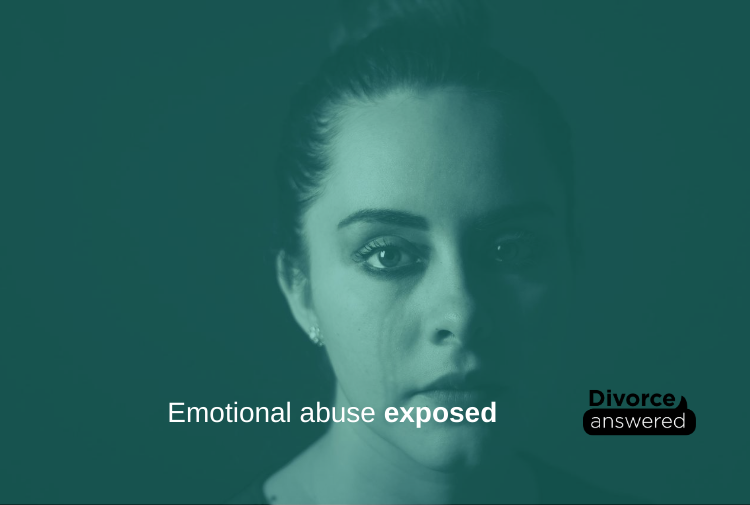
EXPLAINING WHAT EMOTIONAL ABUSE IS, WHAT IT LOOKS LIKE AND HOW TO MANAGE IT
When people usually think about abuse, they think about physical violence. However, abuse can come with invisible scars rather than physical scars. Emotional abuse is one of the hardest to prove forms of abuse with victims suffering in silence and not realising that the are being perpetrated.
Emotional abuse is emerging and gaining more attention as more victims are speaking out. Emotional abuse is when a person is repeatedly exposed or subjected to words, actions and behaviour that are intended to control or limit them through emotional harm or fear. The victim (or recipient of emotional abuse) is subjected to manipulation, isolation and/or intimidation.
Many forms of domestic violence and abuse often come in multiple forms within the relationship. The different forms of domestic violence include physical, verbal, psychological/mental, emotional, social, financial and sexual. In partnered relationships or couples, emotional abuse is often coupled with physical or sexual abuse(^^). Verbal abuse at the core is a form of emotionally abusive behaviour.
Staggering statistics were released from the 2012 ABS Personal Safety Survey (PSS) which highlighted the effects of emotional abuse. The 2012 PSS found that overall, women were more likely to have experienced emotional abuse by a partner than men, with one in four (25%) women and one in seven (14%) men having experienced emotional abuse by a partner since the age of 15 (2.1 million women and 1.2 million men) by a current or previous partner (^^).
EXAMPLES OF EMOTIONAL ABUSE
When people speak about emotional abuse many people don’t know what it means or what it looks like. To assist, here are some examples of emotionally abusive behaviours, which include:
• stopping or trying to stop their partner from contacting or seeing family or friends
• constant insults aimed at making their partner feel ashamed, belittled or humiliated
• monitoring their partner’s whereabouts and/or installing surveillance devices to track their movements
• lying to their child/children with the intent of turning them against their partner
• controlling their partner’s access to employment, study or household money
• depriving their partner of their basic needs such as food or sleep
• threats of harm against themselves, others or pets.
As with many forms of abuse, the effects trickle in slowly and are subtle.
If you are being emotionally abused by your spouse (or perpetrator), you may:
Some of the above behaviours, may happen as a one-off and in isolation. While it isn’t nice, it doesn’t constitute emotional abuse. The above behaviours may happen in combination and most certainly persistently.
EMOTIONAL ABUSE FROM PARENT TO CHILD
Sadly, parents are often knowingly or unconsciously displaying behaviours to their children that can be or is considered emotional abuse.
One study conducted by Schaefer (^^^) sought to determine which specific parental verbal utterances were generally perceived as psychologically harmful. A sample of 151 local mental health professionals and parents (120 women, 31 men) completed a questionnaire which described 18 categories of parental verbalisations commonly associated with psychological maltreatment in the literature.
In parenting, some examples of parental emotional abuse to children include:
Shafer’s study (^^^) study indicated that emotionally abusive parents showed poorer coping skills, poorer child management strategies and more difficulty in forming and maintaining relationships. These parents also reported more deviant behaviour in their children displayed than parents in the control group.
TREATMENT OPTIONS
It is understood that emotional abuse can stay with a person for a lifetime. When treating someone suffering from emotional abuse, it is a matter of identifying what emotional abuse is, finding some acceptance from what has happened, and finding a strategy for coping with it.
IN SUMMARY
Sadly, emotional abuse may be present within a marriage or relationship (be it between adults or adult and child). However, upon separation, emotional abuse can either present for the first time or escalate. More often than not, within divorce, the most common victims of emotional abuse are the children who are used a ‘pawns’ in the game of divorce.
With a heightened understanding, you may realise that some of your behaviours could be considered emotionally abusive and either be more conscious of your behaviour to auto-correct or seek further support from a professional. Equally, knowing more about emotional abuse, you may observe of the emotionally abusive behaviour of others, be in a position to highlight the negative behaviour and support any emotionally abused victims.
References:
^ http://www.abs.gov.au/ausstats/abs@.nsf/Lookup/4102.0main+features602014
^^^ https://aifs.gov.au/cfca/publications/emotional-abuse-hidden-form-maltreatment#typ
Related articles: